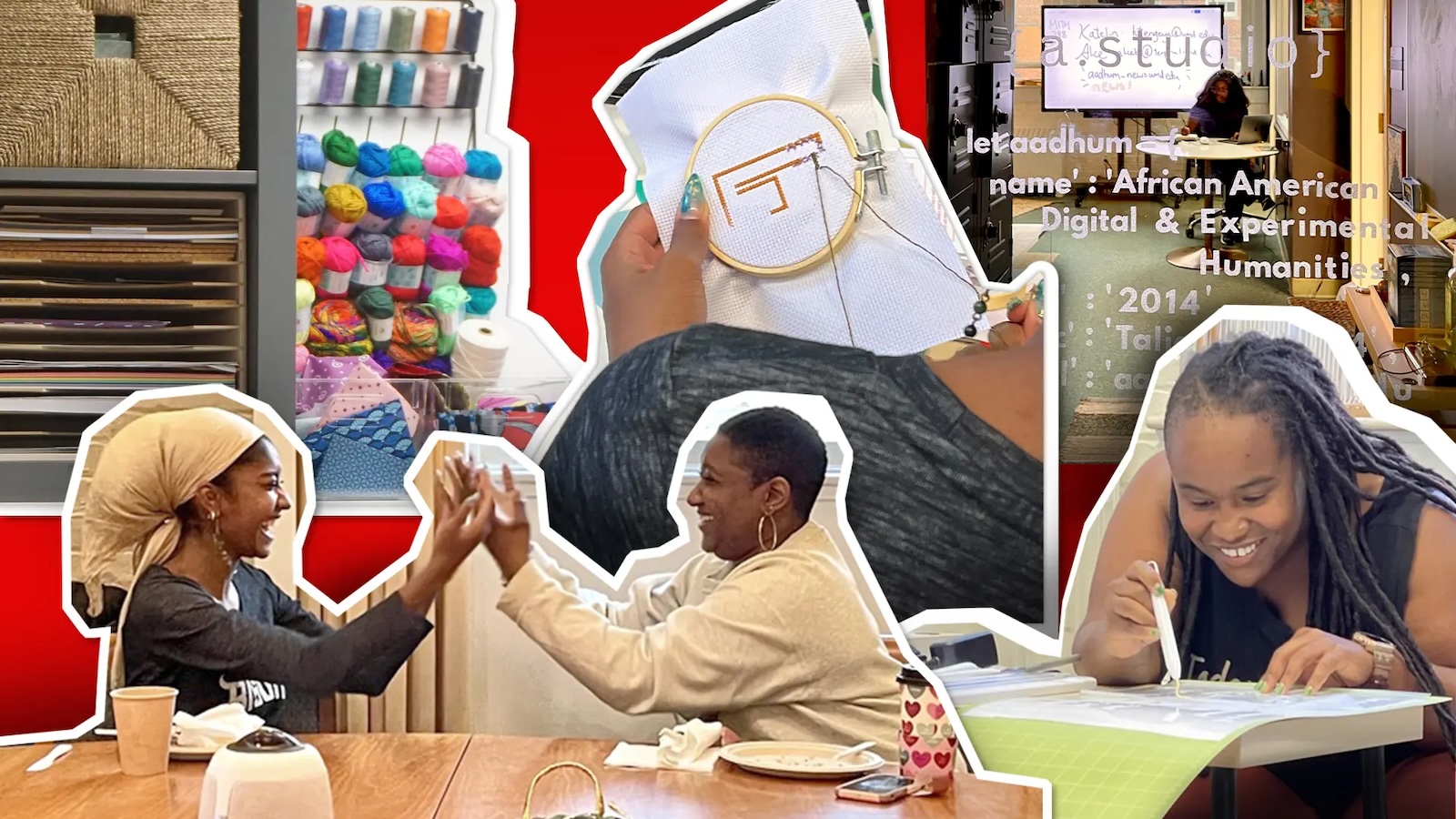$1.4M Mellon Foundation Grant Expands Black Digital Humanities at UMD
November 29, 2023

Initiative fosters broad range of scholarly, creative and experimental work at all levels–undergrad to faculty.
By Jessica Weiss ’05 | Maryland Today
A fresh makerspace for crafting and creativity. Fellowships and residencies for scholars from around the world. And interdisciplinary teams of humanists and technologists working together on research and projects.
Supported by a three-year, $1.4 million grant from The Andrew W. Mellon Foundation, the next phase of the African American Digital and Experimental Humanities Initiative (AADHum) at the University of Maryland will grow and expand work at the intersection of digital studies, digital humanities and Black studies.
The grant will allow the UMD College of Arts and Humanities and the Maryland Institute for Technology in the Humanities (MITH)to operate a range of programs for scholars and artists focused on the study of Black life and digital and experimental storytelling and design. It’s the third round of Mellon funding for AADHum; the first and second phases of the initiative came through a $1.25 million grant in 2015 and a $2 million grant in 2019.
“Given that Black studies is so interdisciplinary, AADHum has become a space where many different kinds of energy can converge to produce truly exciting new work,” said Director Marisa Parham, a professor of English and the initiative’s principal investigator. “From small projects to multiyear research efforts, we’re expanding Black digital and experimental humanities thinking and modalities.”
Since its official launch in 2017, AADHum has helped scholars and administrators advance the practice and ethics of Black digital humanities through scholarship, training and community building. AADHum fosters research at all levels, from grants and fellowship opportunities for undergraduate students, to residencies for senior scholars and collaborators from a range of disciplines, to community engagement programs.
With a focus on hands-on practice as a path to humanities inquiry, AADHum affiliates and grantees have produced a wide range of work, including websites, podcasts, social media storytelling, digital essays, games, digital publications and more. It recently launched its own studio and makerspace in Taliaferro Hall, designed to further facilitate gatherings, research and creation in digital and experimental humanities.
“We encourage people to think with their hands, using material practices of crafting as pathways into discovering use and purpose for digital technologies in their own work, from clay to code,” Parham said. “Experimentation and interdisciplinarity have always been at the heart of Black storytelling.”
AADHum’s offerings include microgrants for students, workshops and humanities/design programs. Throughout the grant period, it will launch a mobile “Critical Making Labs” program, featuring pop-up programming beyond the university and even an ice cream truck. The new Project Igniter program will pair scholars with technologists and designers such as game developers, UX designers and book artists to create cutting-edge and interdisciplinary scholarship.
To sustain AADHum’s work at UMD into the future, it will continue to partner with academic programs, including the new immersive media design major and English’s digital storytelling and poetics minor, as well as the graduate certificate in digital studies. AADHum will also hire additional faculty, formalize a competitive graduate research training and professionalization experience, offer mentor-training programs and expand research partnerships with nearby universities.
“We are so proud of the ways in which AADHum has helped the College of Arts and Humanities become a global leader in experimental digital research related to Black life,” said ARHU Dean Stephanie Shonekan. “This work really is in the service of a larger vision for more dynamic, inclusive and just approaches to knowledge production, which is more important than ever.”
Photos courtesy of the African American Digital and Experimental Humanities Initiative.

